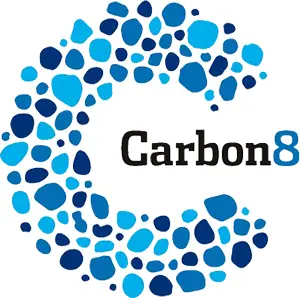A new United Nations report has recognised the importance of the innovative Accelerated Carbonation Technology developed by Carbon8 Aggregates in tackling climate change and supporting the waste hierarchy, while also highlighting the environmental challenge of disposing of waste to landfill.

The UN says the process, which sees the transformation of Flue Gas Treatment residues (FGTr)from Energy from Waste (EfW) facilities into lightweight secondary aggregate, is making “a demonstrable contribution to the developing European circular economy”.
The acknowledgement has been welcomed by Stephen Roscoe, Carbon8’s technical director, who said: “We are delighted to be referenced in such a high profile and scientifically credible report.
“This business is founded on scientific rigour and is a world-first developer of carbon negative aggregate, embodying the principles of the waste hierarchy and the circular economy.
“We have already seen a huge amount of interest in our patented processes and to have our efforts officially acknowledged by the UN demonstrates that we are well on the road to achieving even greater success.”
Carbon8, in which Grundon Waste Management is a major shareholder, uses an award-winning, patented process known as Accelerated Carbonation Technology (ACT) to manufacture the aggregate called C8Aggregate (C8A).
Because the process permanently captures more carbon dioxide (CO2) than is generated during its manufacture, the ACT process means Carbon8 is the world’s first truly carbon-negative aggregate.
It is this technology which featured in the UN’s just published report on the sixth Global Environment Outlook (GEO-6) Assessment for the pan-European region. Recognised as being of great scientific and political importance, it highlights the state and trends of the environment and provides an objective evaluation and analysis of the pan-European environment, and is designed to support environmental decision-making.
The report addresses the mineralisation of carbon dioxide in solid waste to produce products that can be used in construction, stating: “The management of CO2 emissions by carbon capture and utilisation (CCU) is a potentially important future part of a balanced strategy for reducing greenhouse gases emissions. CCU-related products and processes will become more cost effective and numerous and will utilise significant quantities of carbon.
“One currently available CCU process involves the mineralisation of CO2 in solid waste to produce products that can be used in construction. The technology is a managed version of ‘natural carbonation’ whereby CO2 gas is converted to calcium carbonate (limestone). The carbonate-reaction is managed carefully and can be used to manufacture a substitute for aggregates made from virgin stone. Developed at the University of Greenwich the process is being applied in the UK. Carbonated manufactured aggregates are being made from air pollution control residues. The aggregates, which have a structure similar to natural limestone meet European ‘end of waste’ regulations and materials performance standards, and make a demonstrable contribution to the developing European circular economy.”
The report goes on to recognise that: “Waste volumes continue to grow. Disposal of waste in landfills is the major environmental challenge in several parts of the region, despite progress with recycling in many countries.”
“The waste hierarchy is widely accepted as a guiding framework to increase economic value from resource use and to reduce waste. Closing resource-use loops through the promotion of circular economy principles offers further pathways to minimise waste and maximise resource use.”
Having already established two facilities at Brandon, Suffolk, and Avonmouth, earlier this year Carbon8 received approval for a third operation to be built near Leeds. Overall the company’s strategy is to develop five sites nationally with a capacity of 250,000 tonnes per annum.

Comments: 0
No comments yet, why not be the first?